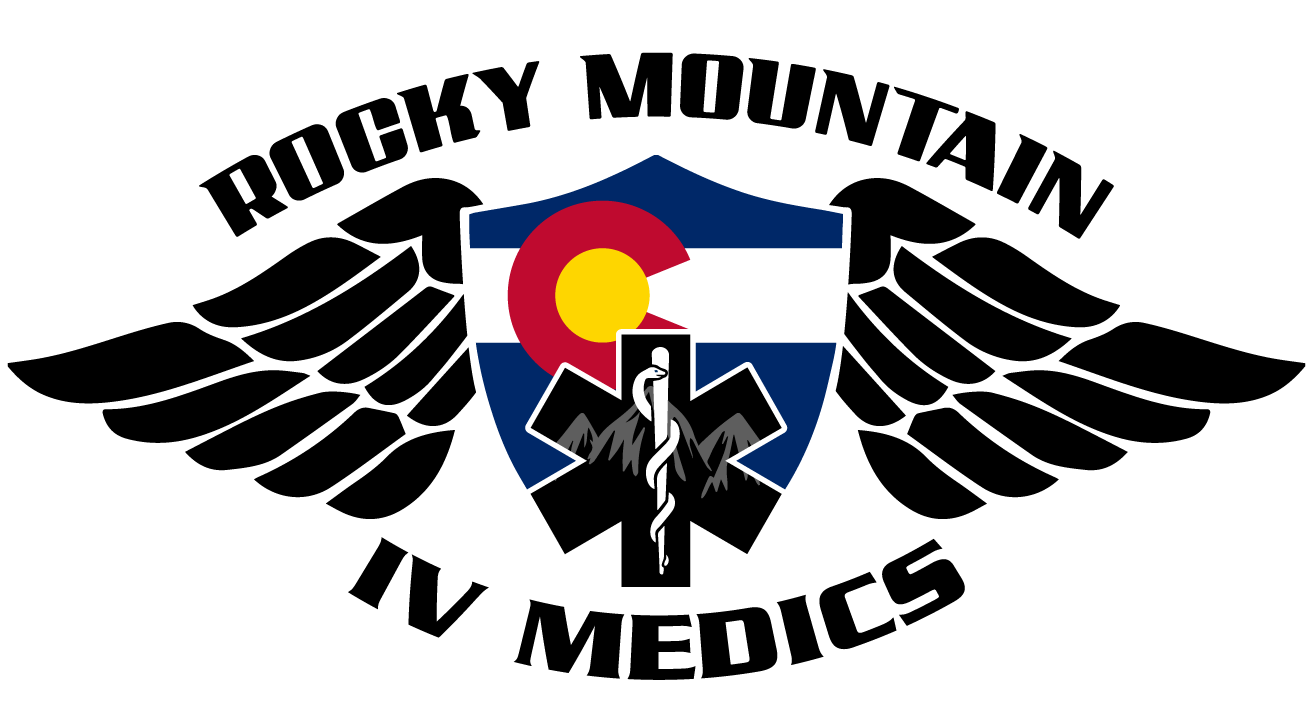Magnesium Infusion: Easing Depression & Anxiety Symptoms

IV Therapy for IBS: Hydration & Nutrient Support
January 28, 2022
Supporting Addiction Recovery with IV Therapy: Benefits & Information
February 28, 2022Magnesium Infusion: Easing Depression & Anxiety Symptoms

If you’re one of the more than 50 million Americans suffering from a depression or anxiety disorder, you know all too well how important it is to get help. The symptoms of these mental health conditions—hopelessness, fatigue, and chronic fear, among others—can be debilitating, making it difficult to navigate daily life.
The good news is that there’s been a lot of focus in recent years on the role magnesium may play in managing mental health symptoms. This mineral is widely available in many forms, including pills, drops, gummies, and powders that can be mixed with water. But is magnesium good for anxiety and depression?
Casinara Explique les Meilleures Méthodes de Paiement pour les Joueurs Français
Les méthodes de paiement jouent un rôle crucial dans l’expérience des joueurs de casino en ligne en France. Que vous soyez un parieur chevronné ou un novice curieux, choisir le bon mode de paiement peut faire toute la différence en termes de sécurité, rapidité et commodité. Dans cet article, nous explorerons en détail les meilleures méthodes de paiement pour les joueurs français, en mettant en lumière leurs avantages et inconvénients respectifs, pour vous aider à prendre des décisions éclairées lors de vos transactions en ligne.
Entre cartes de crédit, portefeuilles électroniques, virements bancaires et autres options innovantes, le paysage des paiements en ligne est vaste et parfois complexe. Comment choisir la méthode la plus adaptée à vos besoins de joueur ? Quels sont les critères à prendre en compte pour garantir des transactions sécurisées et efficaces ? Plongez avec nous dans l’univers des paiements en ligne des casinos en France, et découvrez comment maximiser votre expérience de jeu tout en protégeant vos données personnelles et financières. Prêt à franchir une nouvelle étape dans votre aventure de jeu en ligne ?
Options de paiement les plus populaires en France
Casinara est une plateforme de jeu en ligne dédiée aux joueurs français, offrant une expérience de jeu sécurisée et divertissante. Dans cet article, Casinara explique en détail les meilleures méthodes de paiement disponibles pour les joueurs français, afin de faciliter les transactions financières sur les plateformes de jeu en ligne.
Les joueurs français peuvent profiter de diverses options de paiement sécurisées pour déposer et retirer des fonds sur les sites de jeu en ligne. Parmi les méthodes de paiement les plus populaires figurent les cartes de crédit et de débit, les portefeuilles électroniques, les virements bancaires et les cartes prépayées. Ces options offrent aux joueurs une grande flexibilité pour gérer leurs transactions financières en toute simplicité.
En visitant le site officiel de Casinara à l’adresse https://www.casinara.com/, les joueurs français peuvent accéder à des informations détaillées sur les différentes méthodes de paiement disponibles, y compris les délais de traitement, les frais éventuels et les limites de dépôt et de retrait. Cette transparence permet aux joueurs de choisir la méthode de paiement qui correspond le mieux à leurs besoins et préférences.
Grâce à la diversité des options de paiement proposées par Casinara, les joueurs français peuvent effectuer des transactions en toute sécurité et confidentialité, garantissant une expérience de jeu fluide et sans souci. Pour en savoir plus sur les méthodes de paiement et commencer à profiter des jeux de casino en ligne, rendez-vous sur https://casinara.com/.
Méthodes de paiement sécurisées pour les joueurs français
Casinara propose différentes méthodes de paiement pour les joueurs français afin de faciliter leurs transactions en ligne. Parmi les options les plus populaires, on retrouve les cartes de crédit et de débit Visa et Mastercard, offrant une solution pratique et largement acceptée par les casinos en ligne. Les portefeuilles électroniques tels que Skrill et Neteller sont également largement utilisés pour leur rapidité et leur sécurité accrue.
En outre, Casinara recommande l’utilisation des cartes prépayées comme Paysafecard, idéales pour ceux qui préfèrent ne pas divulguer leurs informations bancaires en ligne. Les virements bancaires restent une option fiable pour les gros dépôts ou retraits. En fournissant ces différentes options, Casinara s’efforce de garantir aux joueurs français une expérience de jeu en ligne fluide et sécurisée, en mettant en avant la diversité et la flexibilité des méthodes de paiement disponibles.
Comparaison des frais et délais de traitement des transactions
Casinara est là pour guider les joueurs français dans le monde complexe des méthodes de paiement en ligne. Pour commencer, les cartes de crédit et de débit sont des options courantes et pratiques pour effectuer des dépôts rapides et sécurisés sur les sites de jeux. Les cartes Visa et Mastercard sont largement acceptées et offrent une simplicité d’utilisation appréciée des joueurs.
Ensuite, les portefeuilles électroniques, tels que PayPal, Skrill et Neteller, sont des alternatives populaires pour les joueurs soucieux de la confidentialité de leurs données bancaires. Ces solutions permettent des transactions rapides et offrent une couche supplémentaire de sécurité grâce à leurs protocoles de cryptage avancés.
Les virements bancaires restent une option fiable pour les joueurs préférant des méthodes de paiement traditionnelles. Bien que les virements puissent prendre un peu plus de temps que d’autres méthodes, ils offrent une méthode sécurisée et directe pour transférer des fonds sur un compte de jeu en ligne.
Enfin, l’utilisation de cartes prépayées comme Paysafecard est une option pratique pour les joueurs souhaitant contrôler leurs dépenses de jeu. Ces cartes prépayées sont largement disponibles dans les points de vente physiques et offrent une manière simple et anonyme de recharger un compte de jeu en ligne.
Recommandations de Casinara pour optimiser vos paiements
Casinara est une plateforme de jeu en ligne réputée qui s’efforce de fournir aux joueurs français des informations précieuses sur les meilleures méthodes de paiement disponibles. Parmi les options les plus populaires pour effectuer des dépôts et des retraits sur les casinos en ligne en France, on retrouve les cartes de crédit/débit telles que Visa et Mastercard. Ces méthodes sont largement acceptées et offrent une commodité appréciée par de nombreux joueurs.
En plus des cartes bancaires, les portefeuilles électroniques comme PayPal, Skrill et Neteller sont également très appréciés des joueurs français. Ces solutions offrent un niveau supplémentaire de sécurité et de confidentialité lors des transactions en ligne. En outre, les joueurs peuvent également opter pour les virements bancaires, qui sont une option fiable pour les gros montants. Casinara met en lumière ces différentes méthodes de paiement pour aider les joueurs français à choisir celle qui convient le mieux à leurs besoins et préférences.
Maintenant que vous avez exploré les meilleures méthodes de paiement pour les joueurs français, vous êtes mieux armé pour profiter pleinement de votre expérience de jeu en ligne. Que vous préfériez la simplicité des cartes de crédit, la sécurité des portefeuilles électroniques ou la rapidité des virements bancaires, il est essentiel de choisir la méthode qui vous convient le mieux. En restant informé des options disponibles, vous pouvez non seulement jouer en toute confiance, mais également maximiser votre plaisir. N’oubliez pas de vérifier les offres spéciales liées à certains modes de paiement pour tirer le meilleur parti de vos dépôts et retraits. Bonne chance et que la chance soit de votre côté!
At Rocky Mountain IV Medics, we understand the importance of magnesium and how it can alleviate a variety of health symptoms, including those associated with mental health concerns. We believe the best form of magnesium for depression and anxiety is a magnesium infusion, and we provide this service at your home, office, or other convenient location to help speed up symptom relief.
What is Magnesium?
Our bodies need this essential mineral for physical as well as mental health. Magnesium is necessary for healthy muscles, nerves, and bones, and it helps maintain blood pressure and blood sugar levels, among many other functions.
We need to consume magnesium as part of a nutritious daily diet. Women should get a recommended 310 to 320 mg of magnesium each day, while men should aim for 400 to 420 mg.
If you don’t get enough magnesium in your diet or your body has difficulty absorbing it, then you run the risk of magnesium deficiency. Symptoms may include:
- Nausea and vomiting
- Fatigue
- Loss of appetite
- Muscle weakness or cramps
It’s also thought that a severe magnesium deficiency can raise the risk of health problems such as type 2 diabetes, high blood pressure, osteoporosis, and migraines.
Fortunately, magnesium is abundant in our food supply. Rich sources of magnesium include:
- Leafy greens
- Nuts
- Seeds
- Whole grains
- Milk
- Yogurt
- Legumes
- Fortified foods such as bread or cereal
If your diet lacks these foods, magnesium is also available in supplement form, either on its own or in a multivitamin. However, food sources and supplements need to pass through the digestive system before entering the bloodstream. That means some of the magnesium is absorbed along that journey before it can get to work.
An IV infusion, such as our IV for anxiety, avoids that problem. IV fluids enter the bloodstream immediately during treatment, so you get maximum absorption and rapid symptom relief.
Magnesium may be recommended for several health issues, such as severe asthma and prehypertension; it’s also a common ingredient in laxatives and antacids. But can magnesium help with depression and anxiety? Research suggests the answer is yes!
How Does Magnesium Help with Depression and Anxiety?
There are many ways to reduce anxiety, such as sleeping well or practicing stress management techniques. An IV treatment may also be helpful, as it’s one of the best forms of magnesium for depression and anxiety.
Research indicates that magnesium plays a role in how well the brain’s neurotransmitters communicate with each other, including those areas of the brain that regulate mood. A review of studies focused on magnesium and anxiety suggested that people with mild to moderate anxiety may benefit from magnesium but that the subject warranted further research.
The same review also noted that magnesium could be “an important adjunct treatment” for depression. Research has shown that depression and low magnesium levels seem to correlate and that increasing magnesium can help alleviate depression symptoms.
Magnesium intake helps maintain the brain structures affected by depression, and it also may inhibit symptoms by regulating the hypothalamic-pituitary-adrenal (HPA) axis, which governs the body’s stress response.
What’s more, research states that 99% of magnesium in humans is housed within the body’s cells. IVs infuse nutrients directly into the bloodstream for an effective and quick delivery to the cells, which makes an IV treatment one of the best forms of magnesium for depression. Again, this is an exciting area poised for more research studies.
Are There Downsides to Magnesium?
There are a few side effects of magnesium supplementation with an IV. Some people report feeling drowsy, while others may feel a little flushed or sweaty. A qualified IV therapy provider will take your health history and discuss any potential side effects with you before starting treatment.
You may also want to talk with your doctor before taking extra magnesium if you have a health condition such as kidney disease or heart arrhythmia or take a medication that may interact with magnesium. And if you’ve decided that magnesium is good for anxiety and depression, talk with your mental health care provider about integrating IV therapy into your treatment plan.
How Often Should I Take Magnesium?
You should try to include magnesium-rich foods in every meal. And most magnesium supplement manufacturers recommend a daily dosage. The frequency of magnesium IV therapy depends on the individual and is influenced by several factors, such as a patient’s overall health, and the severity of their mental health condition.
Contact Rocky Mountain IV Medics for Magnesium IVs
We offer the best form of magnesium for depression and anxiety in our high-quality IV treatments. All of our IV fluids contain medical-grade ingredients for the best results, and every infusion is performed by a trained medical professional.
Rocky Mountain IV Medics understands that managing anxiety and depression symptoms requires an effective treatment plan. To learn more about IV therapy and how it may help you, call or text 720-987-2155 or book an appointment online.

